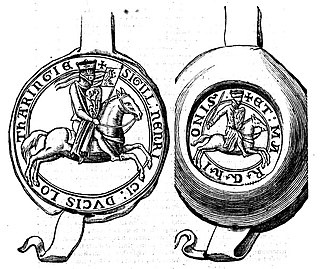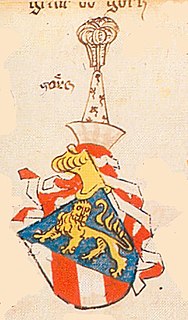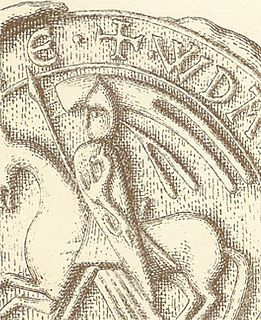 W
WAimery of Lusignan, erroneously referred to as Amalric or Amaury in earlier scholarship, was the first King of Cyprus, reigning from 1196 to his death. He also reigned as King of Jerusalem from his marriage to Isabella I in 1197 to his death. He was a younger son of Hugh VIII of Lusignan, a nobleman in Poitou. After participating in a rebellion against Henry II of England in 1168, he went to the Holy Land and settled in the Kingdom of Jerusalem.
 W
WAlexios III Angelos was Byzantine Emperor from March 1195 to 17/18 July 1203. A member of the extended imperial family, Alexios came to throne after deposing, blinding and imprisoning his younger brother Isaac II Angelos. The most significant event of his reign was the attack of the Fourth Crusade on Constantinople in 1203, on behalf of Alexios IV Angelos. Alexios III took over the defence of the city, which he mismanaged, and then fled the city at night with one of his three daughters. From Adrianople, and then Mosynopolis, he attempted unsuccessfully to rally his supporters, only to end up a captive of Marquis Boniface of Montferrat. He was ransomed, sent to Asia Minor where he plotted against his son-in-law Theodore Laskaris, but was eventually captured and spent his last days confined to the Monastery of Hyakinthos in Nicaea, where he died.
 W
WBerthold IV, a member of the House of Andechs, was Margrave of Istria and Carniola. By about 1180/82 he assumed the title of Duke of Merania, referring to the Adriatic seacoast of Kvarner which his ancestors had conquered in the 1060s and annexed to Istria and Carniola.
 W
WConrad of Wittelsbach was the Archbishop of Mainz and Archchancellor of Germany from 20 June 1161 to 1165 and again from 1183 to his death. He was also a cardinal of the Roman Catholic Church.
 W
WWolfger von Erla, known in Italian as Volchero, was the Bishop of Passau from 1191 until 1204 and Patriarch of Aquileia thereafter until his death.
 W
WFrederick I, known as Frederick the Catholic, was the Duke of Austria from 1195 to 1198. He was a member of the House of Babenberg.
 W
WHenry VI, a member of the Hohenstaufen dynasty, was King of Germany from 1169 and Holy Roman Emperor from 1191 until his death. From 1194 he was also King of Sicily.
 W
WHenry I, named "The Courageous", was a member of the House of Reginar and first duke of Brabant from 1183/84 until his death.
 W
WHenry V, the Elder of Brunswick, a member of the House of Welf, was Count Palatine of the Rhine from 1195 until 1213.
 W
WHermann I, Landgrave of Thuringia and Count Palatine of Saxony, was the second son of Louis II, Landgrave of Thuringia, and Judith of Hohenstaufen, the sister of Emperor Frederick Barbarossa.
 W
WMeinhard II, nicknamed the Elder, a member of the House of Gorizia (Meinhardiner), was ruling Count of Gorizia from 1220 until his death. He also held the title of Vogt (Reeve) of the Patriarchate of Aquileia.
 W
WUlrich II, a member of the House of Sponheim, was Duke of Carinthia from 1181 until his death. He was one of the noble Germans who took part in the Crusade of 1197.